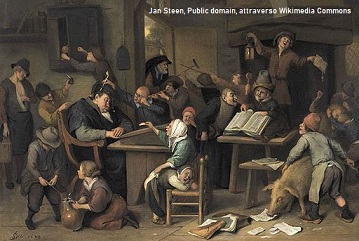Framing Migrant Memories: Lampedusa's Fragmented Archives
DOI:
https://doi.org/10.54103/2035-7680/17872Parole chiave:
Lampedusa; Black Mediterranean; Border Spectacle; Mario Badagliacca's Fragments; photography and poetry; Maaza Mengiste's “Nepenthe”; African Diaspora; ArchivesAbstract
The small island of Lampedusa, a key destination of the Central Mediterranean Route connecting Africa to Italy, offers a special observatory on the contemporary trans-Mediterranean odyssey of migrants, although often transformed into a “border spectacle.” Upon landing, migrants are stripped of their belongings, as these are impounded by the authorities. Such an act of dispossession is intended to deprive them of their histories, family ties and cultural identity. Photographer Mario Badagliacca has portrayed a selection of these lost and retrieved items in his work Fragments (2013). Each object reveals expectations, fears, desires, endurance, but cannot tell a full story. They are fragments of an open-ended narrative that requires to be framed and told, if we wish to gain a better understanding of the Black Mediterranean, its history, and consequences. What remains untold can only be imagined. Writer Maaza Mengiste imagines what lies behind two smudged photographs portrayed by Badagliacca. As always, the force of imagination provides signification, solidarity, and survival in the fractured history of the African Diaspora.
Downloads
Riferimenti bibliografici
Badagliacca, Mario. Frammenti, 2013, www.mariobadagliacca.com/frammenti_ 2013-r8112. Accessed 27 Feb. 2022.
---. Grooving Lampedusa, 2012. Photographic project: www.mariobadagliacca.
com/grooving_lampedusa_2012-r8153. Accessed 27 Feb. 2022; Multimedia project: www.mariobadagliacca.com/grooving_lampedusa_video_installation-w1159. Accessed 27 Feb. 2022.
Bolzoni, Attilio. “Che cosa resta di un viaggio della speranza.” Repubblica, 23 giu. 2013, p. 34.
Cantelli, Veruska. “Fragments: An Archaeology of Dislocation.” Warscapes Magazine, special Issue Mediterranean, Set Press, 2018, p. 29.
Cuttitta, Paolo. Lo spettacolo del confine: Lampedusa tra produzione e messa in scena della frontiera. Mimesis, 2012.
De Genova, Nicholas. “The Border Spectacle of Migrant ‘Victimisation’.” openDemocracy, 20 May 2015, www.opendemocracy.net/en/beyond-trafficking-and-slavery/border-spectacle-of-migrant-victimisation/. Accessed 27 Feb. 2022.
--- Working the Boundaries: Race, Space and ‘Illegality’ in Mexican Chicago. Duke University Press, 2005.
Di Maio, Alessandra. “Mediterraneo Nero. Le rotte dei migranti nel millennio globale.” La città cosmopolita: Altre narrazioni, edited by Giulia De Spuches. Palumbo, 2012, pp. 142-163.
Drabinsky, John E. Glissant and the Middle Passage: Philosophy, Beginning, Abyss. University of Minnesota Press, 2019.
Édouard Glissant: One World in Relation. Directed by Diawara, Manthia, 2010.
Elbagir, Nima, et al. “People for Sale: Where Liver Are Auctioned for $ 400.” CNN, 14 November 2017. www.edition.cnn.com/2017/11/14/africa/libya-migrant-auctions/index.html. Accessed 27 Feb. 2022.
Glissant, Édouard. Poetics of Relation. University of Michigan Press, 1997.
Jay, Martin. “Scopic Regimes of Modernity.” Vision and Visuality, edited by Hal Foster. Bay Press, 1988, pp. 3-23.
King, Russell. The Mediterranean Passage. Liverpool University Press, 2001.
Mazzara, Federica. Reframing Migration: Lampedusa, Border Spectacle, and Aesthetics of Subversion. Peter Lang, 2019.
Mengiste, Maaza. “Nepenthe.” Warscapes Magazine, special Issue Mediterranean, Set Press, 2018, p. 22.
--- The Shadow King. Norton, 2020.
Metz, Christian. The Imaginary Signifier: Psychoanalysis and the Cinema. Indiana University Press, 1977.
Mhute, Wadzanai. “The ‘Detective Work’ behind a War Novel.” The New York Times, 12 Nov. 2020, www.nytimes.com/2020/11/12/books/maaza-mengiste-the-shadow-king-photography.html. Accessed 3 April 2022.
Pandolfo, Stefania. “‘The Burning’. Finitude and the Political-Theological Imagina¬tion of Illegal Migration.” Anthropological Theory, vol. 7, no. 3, 2007, pp. 329-363.
Portelli, Alessandro. “Mediterranean Passage: The Beginnings of an African Italian Literature and the African American Example.” Black Imagination and the Middle Passage, edited by Maria Diedrich, et al. Oxford University Press, 1999, pp. 282-304.
Saucier, Khalil, and Woods, Tryon P. “Ex Aqua: The Mediterranean Basin, Africans on the Move, and the Politics of Policing.” Theoria, vol. 61, no. 141, 2014, pp. 55-75.
Sharpe, Christina. In the Wake: On Blackness and Being. Duke University Press, 2016.
Soyinka, Wole, et al. Migrations/Migrazioni: An Afro-Italian Night of the Poets. Bookcraft, 2012; Italian (bilingual) edition: Migrazioni/Migrations: la notte dei poeti afro-italiana. 66&nd, 2016.
---. A Humanist Ode to Chibock, Leah. Bookcraft, 2019; Ode laica a Chibok e Leah (bilingual edition English-Italian). Jaca Book, 2019.
Urbina, Ian. “The Secretive Prisons that Keep Migrants out of Europe.” The New Yorker, 6 Dec. 2021, www.newyorker.com/magazine/2021/12/06/the-secretive-libyan-prisons-that-keep-migrants-out-of-europe. Accessed 27 Feb. 2022.
--- with Galvin, Joe. “A Migrant Prison Officially Closes. But How Much Has Changed?” The New Yorker, 28 Feb. 2022. www.newyorker.com/news/news-desk/a-migrant-prison-officially-closes-but-how-much-has-changed?utm_source=onsite-share&utm_medium=email&utm_campaign=onsite-share&utm_brand=the-new-yorker. Accessed 28 Feb. 2022.
Vallorani, Nicoletta. Nessun Kurtz: Cuore di tenebra e le parole dell’Occidente. Mimesis, 2017.
Walcott, Derek. “The Sea is History.” The Poetry of Derek Walcott 1948-2013, selected by Glyn Maxwell, Farrar, Straus and Giroux 2017, pp. 253-6.
Dowloads
Pubblicato
Come citare
Fascicolo
Sezione
Licenza

Questo articolo è soggetto a licenza Creative Commons Attribution-NonCommercial-NoDerivatives 3.0 International License.




